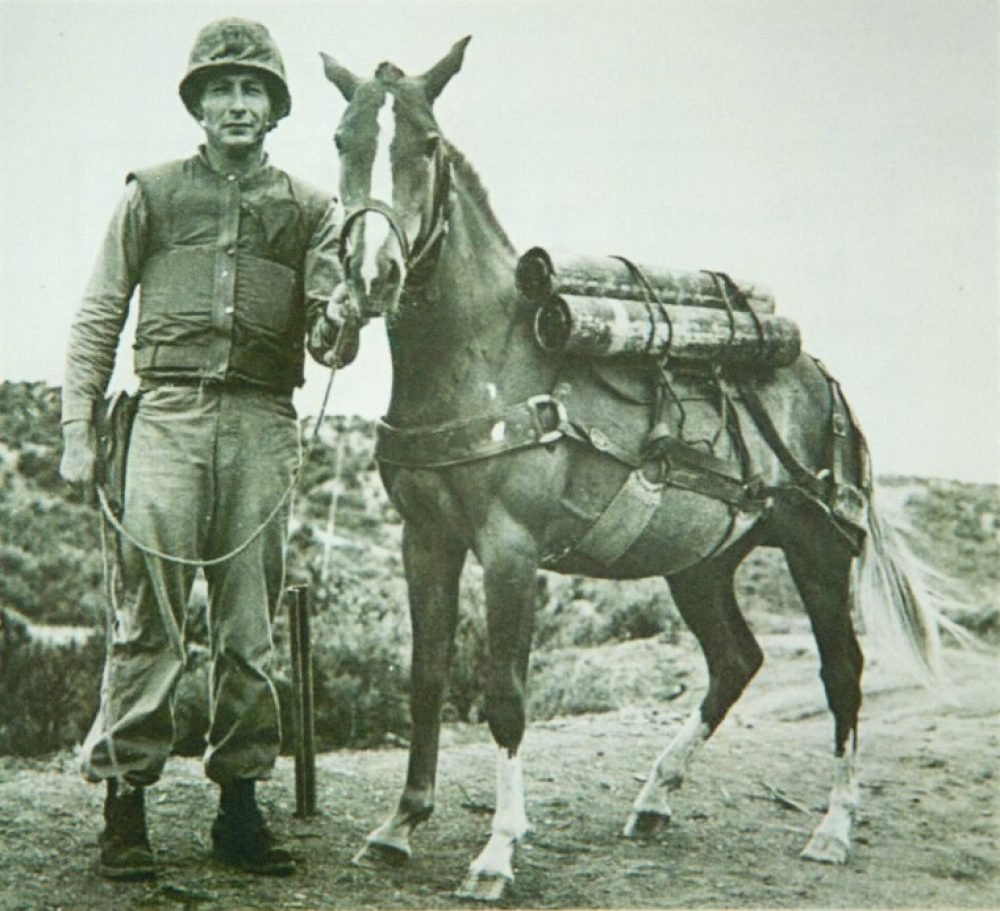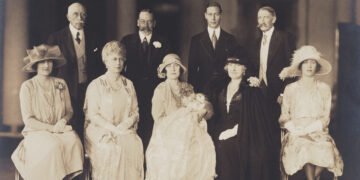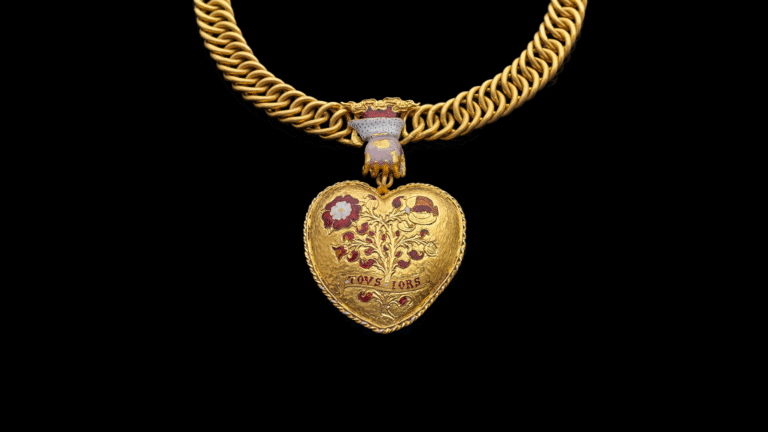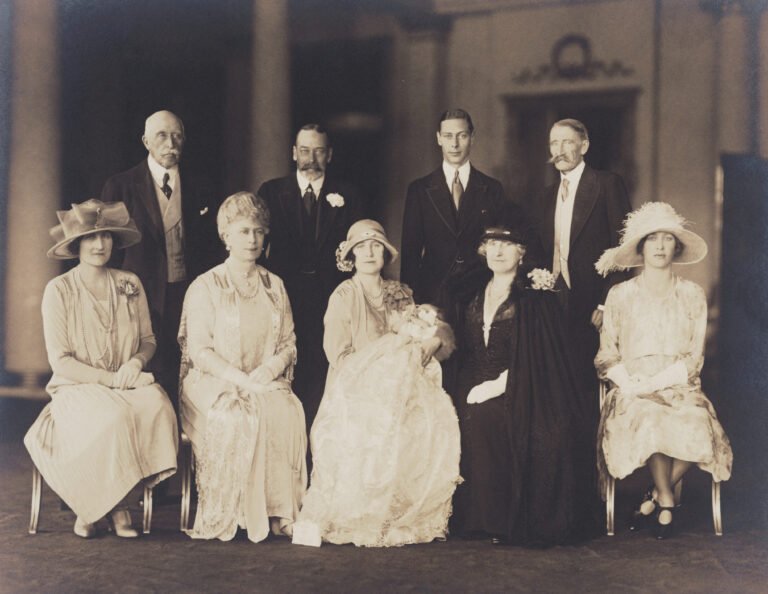Princess Alexandra yesterday awarded the PDSA Dickin Medal – the animal equivalent of a Victoria Cross – to a horse which served in the Korean War of the 1950s, saving many lives in the line of duty.
Sgt Reckless was a US Marine Corps war horse, who initially trained as an ammunitions carrier. It was her bravery and life-saving work during the bloodiest Korean War, 1950-1953, which saw her promoted to the rank of Sergeant.
Alexandra handed over the medal, the highest accolade an animal can earn whilst serving in a conflict zone, to the PDSA charity on her behalf. The Princess, 79, is the charity’s patron, which helps with vet bills for those in need.
The horse made 51 solo trips – without a rider – in juat one day of battle in 1953, to carry ammunition and weapons to the front line under enemy fire; Reckless also carried wounded soldiers back from the front, down the mountain to safety.
A smart animal, Reckless was taught battlefield survival skills. She had learnt to respond to the cry ‘incoming!’, when she would run for a bunker. She often slept in the tents of her comrades in the Anti-Tank Division of the 5th Marines, and ate in the mess tent with them.
Sgt Reckless was nominated for the PDSA Dickin Medal by her biographer Robin Hutton, supported by the US Marine Corps. Robin said: “Although Reckless was wounded twice, she didn’t let that stop her or slow her down. There is no knowing the number of lives she saved. What she did in this battle not only earned her the respect of all that served with her, but it got her promoted to Sergeant.”

When she arrived back in America following the war, hundreds of people turned out to give Reckless a hero’s welcome. She was awarded two Purple Hearts for wounds received during the Battle of Vegas, a Marine Corps Good Conduct Medal, a Presidential Unit Citation with bronze star, the National Defense Service Medal, a Korean Service Medal, the United Nations Korea Medal, a Navy Unit Commendation, and a Republic of Korea Presidential Unit Citation.
“Her heroics embody the word Marine and those who served alongside Reckless truly loved her,” Hutton said. “She was loved by the marines; they took care of her better than they took care of themselves – throwing their flak jackets over her to protect her when incoming fire was heavy, risking their own safety […] Her relationship with the soldiers underscores the vital role of animals in war, not just for their prowess and strength in battle, but for the support and camaraderie they provide to their fellow troops.”
Reckless eventually died in 1968 following sedation due to an injury, leaving behind a legacy of four foals; she was around 20 years old.









